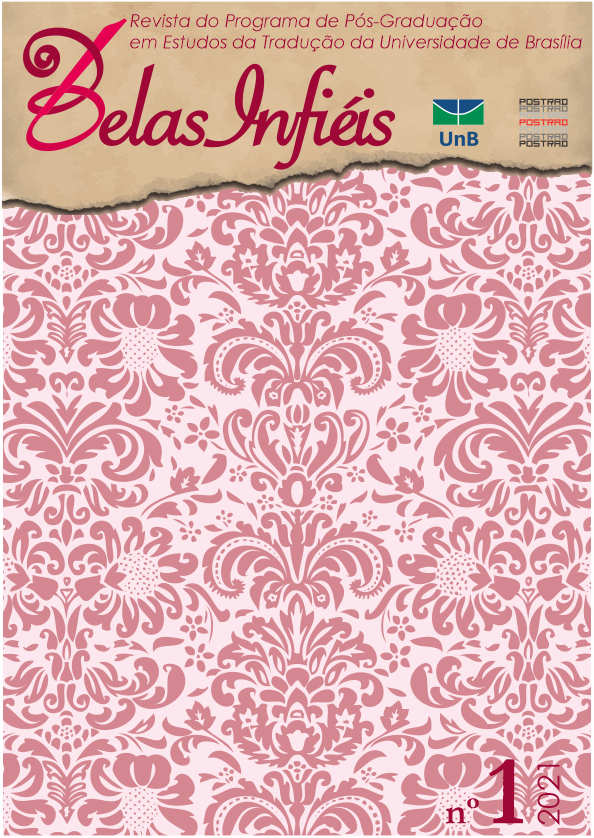On Russian Literature Translated in Brazil: An Interview with Denise Regina de Sales
DOI:
https://doi.org/10.26512/belasinfieis.v10.n1.2021.34604Keywords:
Literary translation. Russian literature in Brazil. Interview.Abstract
We hereby present an interview with Denise Regina de Sales, Senior Lecturer, researcher and translator whose repertoire of translations from Russian to Portuguese includes works by renowned authors, such as: Fiódor Dostoiévski, Anton Tchékhov and Ivan Turguêniev. In addition to the works of these authors, her repertoire also includes translations by writers such as Mikhail Zóchtchenko, Vladímir Voinóvitch, Valentin Katáiev, Aleksandr Grinevsky and Varlam Chalámov, the latter two in partnership with Graziela Schneider and Elena Vasilevich, respectively. Among her translations from Russian, there is also The Women's Revolution, a volume organized by Graziela Schneider with articles, minutes, pamphlets and essays written by female Russian-Soviet authors on the emancipation and condition of women. From Portuguese to Russian, Denise Regina de Sales translated, in partnership with Elena Vasilevich, the short story “João Cardoso’s mate”, by Simões Lopes Neto. She is now translating, from Russian, excerpts from a novel by Galina Keptuké (1951-2019), writer and translator whose language belongs to the Tungusic branch of the Altaic family, spoken by the Evenques, a nomadic people living in the North of Asia, in the border region of Russia, China and Mongolia. The interview was given to us by email from June to August 2020 and addresses issues that go through the translation from Russian to Portuguese. Regina also told us about her academic experiences and about her theoretical position regarding translating. Our double objective was to learn a little more about the issues surrounding the translation market for works written in Russian and their teaching and researching in Brazil.
Downloads
Downloads
Published
How to Cite
Issue
Section
License
Copyright (c) 2021 CC BY

This work is licensed under a Creative Commons Attribution 4.0 International License.
Given the public access to this journal, the texts are free to use but requires the recognition of the original authorship and initial publication in this journal to be properly stated.
 The journal allows the use of works published for non-commercial purposes, including the right to submit the work to publicly accessible databases. Published contributions are the sole and exclusive responsibility of the author(s).Â



















